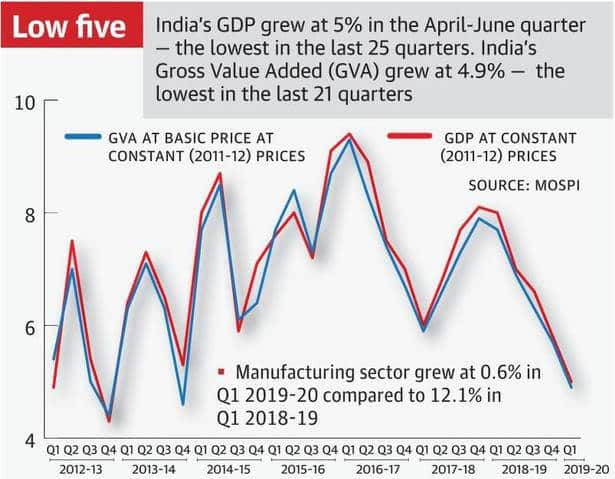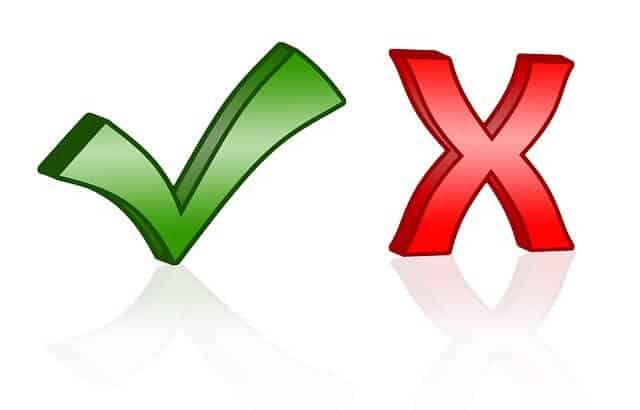
Loaded questions?
What are those?
Are you familiar with loaded questions?
You may be a veteran with respect to UPSC Preparation. Still, you may not be familiar with the loaded questions. This is not your fault, because UPSC was not known to use them in their papers. However, they did, this year.
So all aspirants, from now onwards, should know how to properly answer a loaded question. ClearIAS – who keenly analyzes and understands the new trends with respect to the latest UPSC requirements – can surely help.
Loaded Questions in UPSC Mains 2019
See the loaded questions in the General Studies Papers of UPSC CSE Mains 2019 below:
Question 1) “What are the challenges to our cultural practices in the name of secularism?” (Answer in 150 words)
Question 2) “Do you agree with the view that steady GDP growth and low inflation have left the Indian economy in good shape? Give reasons in support of your arguments.” (Answer in 150 words)
What is a loaded question?

A loaded question is a tricky question that’s based on an unjustified assumption.
Loaded questions are based on unfounded presumptions, which may sometimes be false as well. However, the questioner who uses it causes people to respond in a particular way.
You may note that there may be more meaning to a loaded question than it appears to have.
Example of a loaded question

The traditional example is the question: “Have you stopped beating your wife?”.
Whether the respondent answers yes or no, he will admit to having a wife and having beaten her at some time in the past.
Thus, these facts are presupposed by the question. This is a perfect case of entrapment because it narrows the respondent to a single answer.
This technique is successfully used by lawyers and media persons while questioning. Now, even UPSC has started using it. Unless you are extremely cautious to realise that the question is a loaded one, you may fall into the trap laid by the questioner.
Why is the ‘Secularism Question’ by UPSC a ‘loaded’ one?
“What are the challenges to our cultural practices in the name of secularism?”.
The question is a loaded question because it has a prejudice that there are some or many challenges to our cultural practices in the name of secularism.
As an aspirant, you were asked to write against a core value of the Indian Constitution – secularism, by a Constitutional body, UPSC.
Why is the ‘Steady GDP Growth Question’ by UPSC a ‘loaded’ one?
“Do you agree with the view that steady GDP growth and low inflation have left the Indian economy in good shape? Give reasons in support of your arguments.”
The problem with this question is that it comes with too many unjustified assumptions. One such assumption is that India has a steady GDP growth (which is actually false. GDP growth is actually falling). The next assumption is that India has low inflation (debatable). You were given freedom only to either agree or disagree with the view that India’s economy is in good shape.
How did candidates answer these loaded questions under exam hall pressure?
No. We don’t have any data on that.
Answer sheets are still with UPSC 🙂
The ClearIAS challenge: Results

However, we have the data of a very similar challenge.
ClearIAS.com replicated these questions to create an innovative challenge. This time, without any exam-hall pressure. We gave an opportunity to all UPSC aspirants to express his/her opinions, as patriotic Indians, about the ‘Secularism Question’ asked in the UPSC Civil Services Exam – in the comment space provided on the ClearIAS website – in this link.
We got a lot of answers within a short time.
Do you want to know what was the opinion of the candidates? How did they respond to the loaded questions?
Any guesses?
Trap 1: Attempt to ‘invent’ challenges
Yes, most of the aspirants (about 70 %) fell into the trap and started to ‘invent’ challenges to Indian culture because of secularism. Nevertheless, the challenges mentioned were not convincing enough.
Equally flimsy was the sudden tendency to find fault with the Indian version of secularism, which otherwise was always held in high respect. Some aspirants mentioned that the whole concept of secularism is foreign, and India became secular only after the 42nd Constitutional Amendment.
Trap 2: Playing neutral and diplomatic
Do you believe you can give a politically correct answer to this question? Well, some aspirants (about 20%) tried that as well, but in vain. In their attempt to give a diplomatic answer, they just poured the confusion in their mind into the answer.
It happens because aspirants are not trained on how to respond when they see questions like these.
All you need to do is answer as an upright officer!
We are glad to notice some great answers as well. Despite the pressure, they stood cemented to their core values, and preserved their integrity!
Well, the future of India lies in candidates like you.
How should you answer the “Loaded Questions”?
It is an entirely different debate whether UPSC should use loaded questions in the Civil Service Main Exam or the Personality Test. However, if they ask a loaded question, your approach should be the same.
If you notice a loaded question, don’t get carried away with the flow of the question. Rather use the below tactics.
1. No ‘YES’ or ‘NO’

Never try to answer any loaded question with a simple yes or no.
For example, if you try to answer the question ‘Do you agree with the view that steady GDP growth and low inflation have left the Indian economy in good shape?’ with either yes or no, you are just focussing on the current shape of the economy. If you go in that direction, you admit the assumption that India has steady GDP growth (which is a faulty statement, see the graph below.). Don’t fall into that trap.
2. Challenge the assumption

Be bold enough to challenge the assumption behind the question.
In the GDP question, mention that India is growing, however, it is not accurate enough to call the growth ‘steady GDP growth’, because GDP growth has actually fallen in the last couple of years.
You can even challenge the low inflation assumption. As you know, the inflation rate has come down but there is still inflation in the Indian economy. This means that prices are still rising. It is because of the base-year effect that the inflation rate has decreased. Also, the inflated rate varies based on the indices we choose for calculation – WPI or CPI.
3. Find what is positive and find what is negative

In the question “What are the challenges to our cultural practices in the name of secularism?”, find the two key entities first. They are (1) Cultural Practices (2) Secularism.
Which of the entities has more negativities associated with it – Cultural Practices or Secularism?
As you all know, Sati was once a cultural practice in India. Untouchability was a cultural practice – which still exists in some other forms in India. The caste system is also a cultural practice. We still have many superstitions associated with our culture. On the worst side, we also hear news about many crimes that liberal minds cannot accept in modern society like the honor killings (Khap panchayats).
What about Secularism then?
Indian secularism is a result of the interaction between positive elements in Indian Culture, the ‘religious tolerance’ and the ideas that came from the West. It resulted in an equal focus on intra-religious and inter-religious domination.
Indian secularism equally opposed the oppression of Dalits and women within Hinduism, the discrimination against women within Indian Islam or Christianity, and the possible threats that a majority community might pose to the rights of the minority religious communities (Courtesy – NCERT).
Clearly, secularism is a positive concept, whereas culture can have negative aspects as well. It is not the other way around. Even in stressful situations, don’t think against your core values. As a future upright officer, you should show your integrity and resist all pressures to bend.
4. Don’t lean right or left

Opportunistic alignment to any ideology that is against our constitutional values is a strict NO.
The question may appear to be right or left-biased, however, as a future officer that should never bother you. Your duty is to answer the same befitting an officer of impeccable integrity. Yes, ethics is not something that should be brought just in your ‘Ethics, Integrity, and Aptitude’ paper but it should be visible in all your answer sheets!
As you know, politicians are not permanent. They change sides with every election. However, bureaucrats are permanent executives who stay in power for the next 30-40 years.
India, for all practical purposes, is governed by bureaucrats like IAS, IPS, IFS, etc.
Union Public Service Commission (UPSC), is highly reputed for its intention to select aspirants who are able and impartial. They never ever encouraged the politicization of Indian Bureaucracy. The Commission may include ‘loaded questions’, but that’s a technique to filter out candidates who bend. Nobody wants India to be in the hands of persons with no individuality!
Conclusion
‘Loaded Questions’ are one of the new techniques used by UPSC recently. There are a lot of new changes in UPSC Prelims, Mains, and Interviews with the kind of questions being asked.
Aspirants need to be alert to understand the changing trends. Regular reading of ClearIAS guidance and strategy articles can surely help. Also, check our emails.
It is quite OK to point out a logical fallacy in a ‘loaded question’. In fact, we encourage that. Your answer will stand out.
Never follow the bandwagon.
Don’t listen to people who ask to write answers to please evaluators with an ‘ideology’. They are mistaken. They have no idea how this exam works. Don’t be misguided.
Be bold. Be a person of integrity.
India needs brilliant and bold officers like you.






thank you so much . you help me in setting my mind about upsc exam.
@ Alisha – Glad to hear that. Happy to help.
I appreciate it,Great work from your side.We till date have been guided to divide the given mains question into parts and answer each part in sufficient manner as per the question’s requirement.The aspect of challenging the context of question,to uphold the integrity and core values is a great lesson to aspirants who are to be future bureaucrats.
# Also one should be careful in identifying the loaded question,one shouldn’t challenge context of other normal questions.
@ Krishnan – You said it. Appreciate the quick understanding. All the best!
Wonderful awakening thanks
@ Manish – Happy to help:-)
Many thanks to clear IAS for the wonderful explanation. Expecting more such strategy articles.
@ Neeraja – You can expect more strategy articles soon 🙂
The best advice which many online and offline classes fails to give. Thank you clear IAS for letting us understand the demands of the mains paper. I want to join your mains test series, kindly help.
@ Isheeep – Thank you for the comments. Appreciate your quick understanding. ClearIAS, at this moment, don’t offer a paid test series for UPSC Mains. Most of our programs for UPSC Mains are free. You can check it here.
as you told sir, these are hypothetical questions with conclusion neither yes
but not yes nor no but not no. thank you for your inputs on current pattern of upsc exam. hope we may get guidance like this in future too. cheers!
@Sanga – These are not hypothetical questions, however a different category of questions which are known as ‘loaded questions’.
What a analysis sir,
Appreciate your effort.
Thanks for elaborated mind.
@Dinesh – Thanks for the feedback! We work hard to meet expectations like yours. All the best!
This is really a smoke clearing bunch of words. Well written that it made a remarkable impact on my thought process. Wishing ClearIAS all the very best sothat they can bring up more legendary articles like this !
@Muhammed – Thank you for the kind words. More articles soon 🙂 All the best!
Thank you so much sir…Much awaited information
I received daily email and three question with this..These question are very beneficial 4 my preparation..Thanks sir. will take mock test also after some time
Thank you so much for the valuable information regarding the changing trends in upsc